Reflecting on our time in Liangdeng Village, we realize – there are some things you can never know until you experience them yourself.
Before coming to Liangdeng Village, many volunteers couldn’t imagine themselves enduring life in this impoverished mountainous area, under the scorching sun and drenched by rain, as resilient as wild grass, overcoming challenges, adapting, and enduring days of accumulated sweat, all while sincerely appreciating the remote beauty and sharing pure joy…
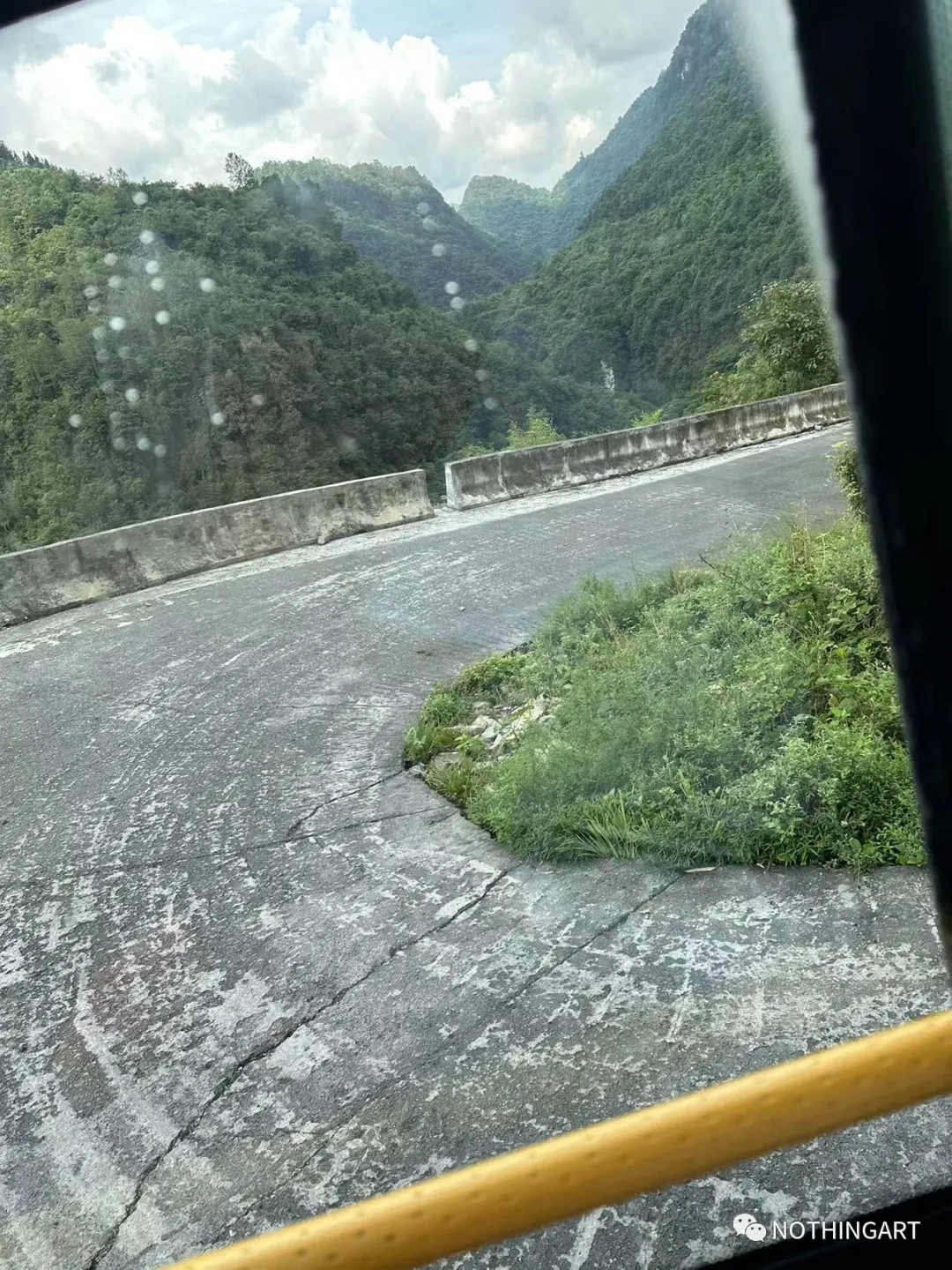
The first time up the mountain, facing a 270-degree turn and steep slope, everyone was filled with fear and concern. By the time we left Liangdeng, we had become accustomed to it.
Water is scarce in the five groups of Liangdeng Village, with no stable supply. We stayed in Group One, where in 2022 each household contributed 2,000 yuan, organized by local villager Wu Guozhuang, to bring water into their homes. The other four groups still rely on communal wells.
Our group of 19 volunteers and Wu Guozhuang’s family of three, 22 people in total, shared one faucet. We had to conserve water, unable to bathe, only able to maintain basic hygiene.
When the pipes clogged and the water stopped, we could only use a little for simple washing.
One of the biggest initial challenges for the volunteers was using the pit toilet made of wooden planks.
The transition from flush toilets to pit toilets was significant, but after a few days, we became “squatting buddies.”
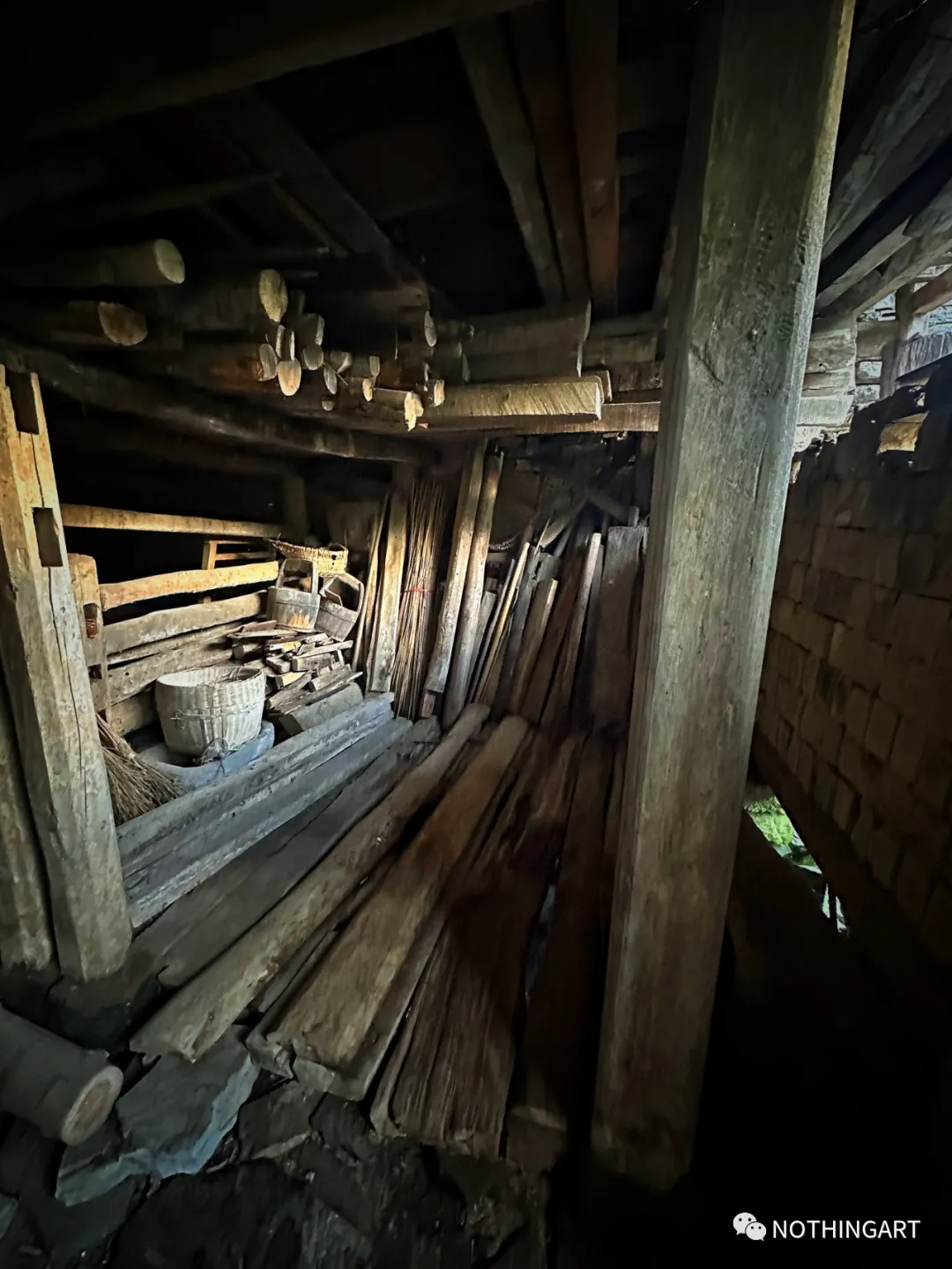
We had to squat over the gaps in the wooden planks.
Cooking was done on a large traditional stove using firewood. Each day, we used ingredients gathered from the village – wild tomatoes, wild leeks, eggs, and a spicy corn mash – to prepare simple meals.
Left: Wild cherry tomatoes, one of the main ingredients for our tomato omelets.
Right: A type of fungus called “fire charcoal mushrooms” found only under chestnut trees, which turns black within half an hour of being cut.
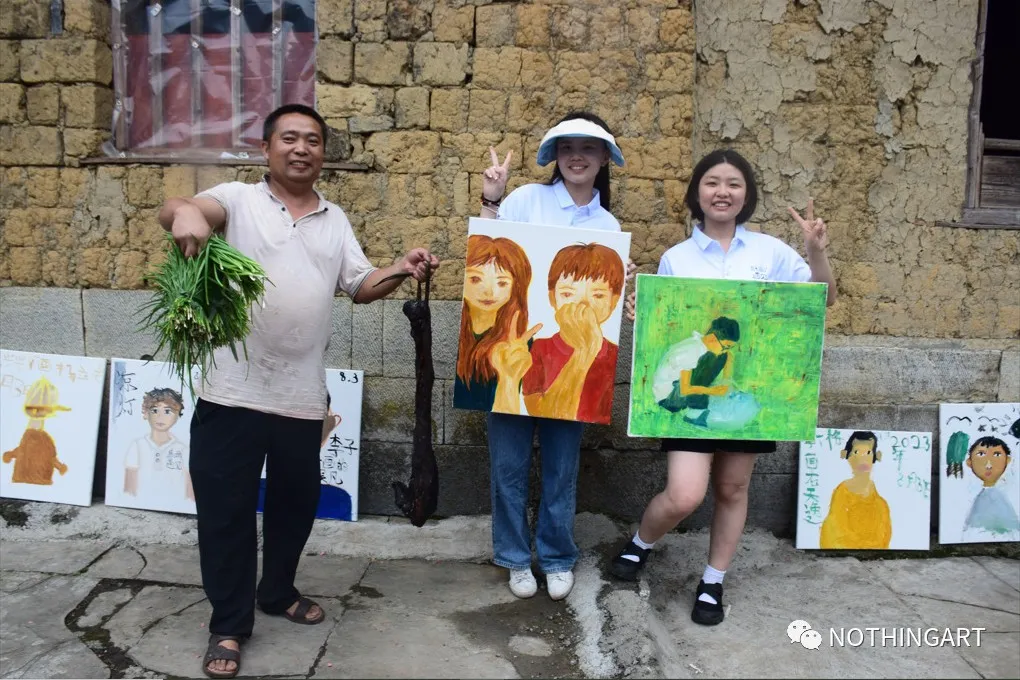
Wu Guozhuang picked some wild leeks and bought a piece of homemade cured meat for an extra meal!
Wu Guozhuang helped chop wood and start the fire, while Teacher Wang prepared the vegetables.
The adult volunteers cooked large pots of fried rice with eggs for the children, paired with a spicy red corn relish.
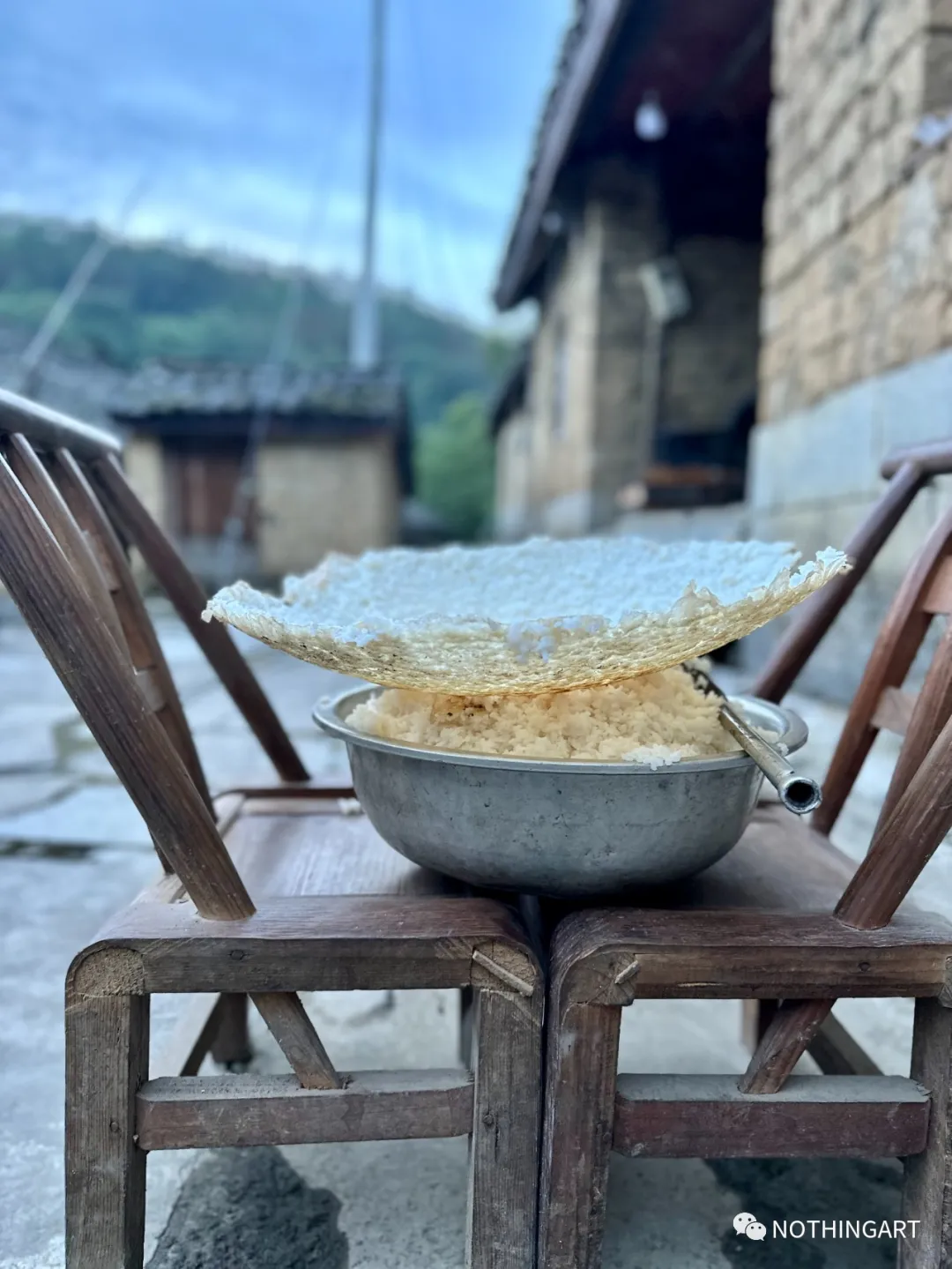
The crispy rice crust that forms when cooking in a cast-iron pot over a wood-burning stove.
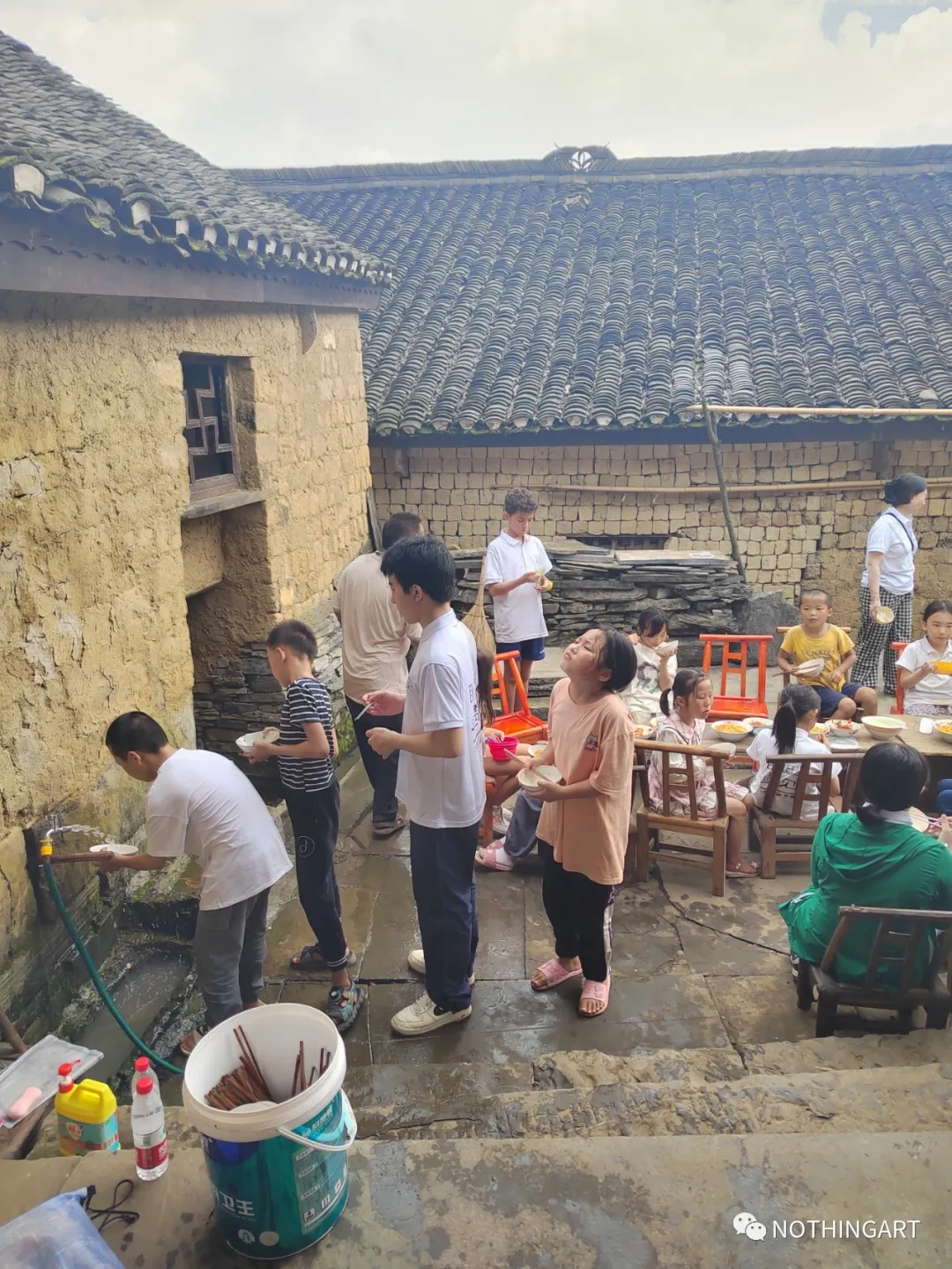
After eating, we lined up to wash dishes, taking care of our own responsibilities.
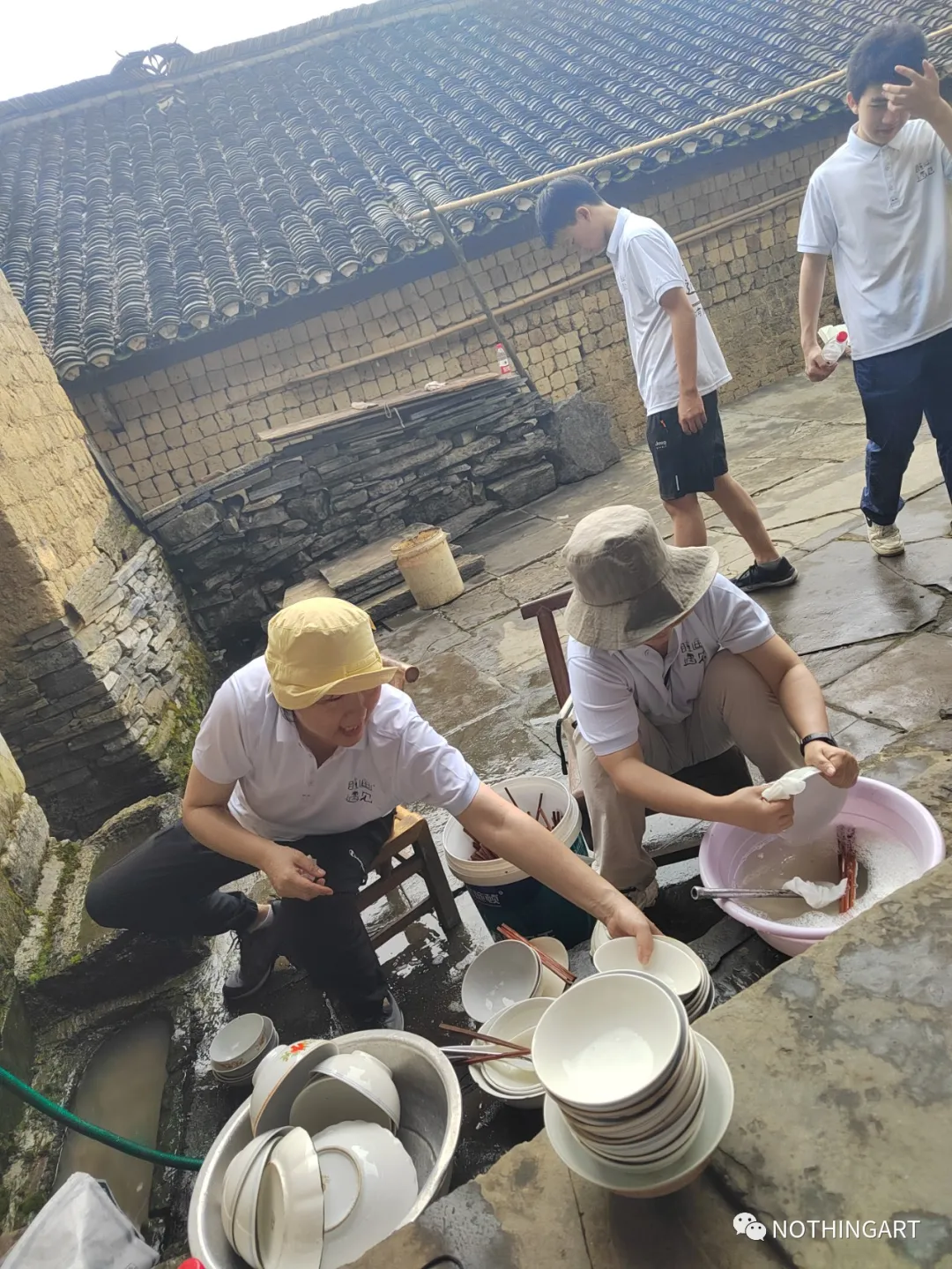
The adult volunteers took care of the rest of the dishwashing.
At night, we slept on the uneven floor of Wu Guozhuang’s century-old house, always worrying about whether it would rain and if the roof would leak.
If it rained, the priority was to wash our hair in the rain and eat quickly – because we still had to go out after the rain stopped.
And then there were the “old friends” – mosquitoes and biting insects that came out as soon as it got dark, battling them every day. Mosquito repellent wasn’t very effective, and they could sneak into mosquito nets.
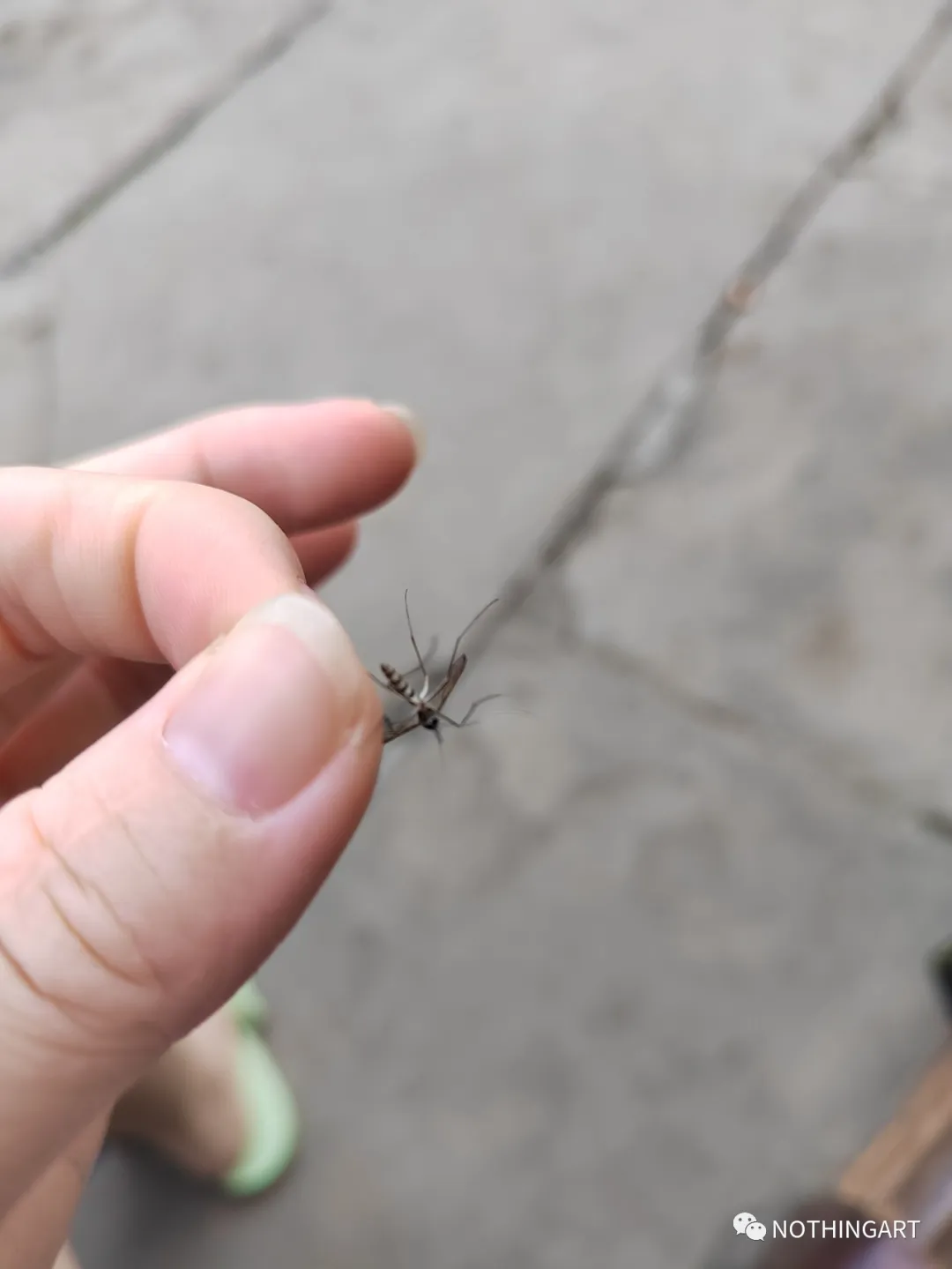
A mosquito that was killed on the ground was immediately carried away by an unknown insect.

A large spider hung near the pit toilet, hopefully catching more mosquitoes for us.
During outdoor sketching, stepping on three steps meant encountering five grasshoppers, and seven insects in five steps was common. Younger volunteers went from being frightened to gradually adapting.
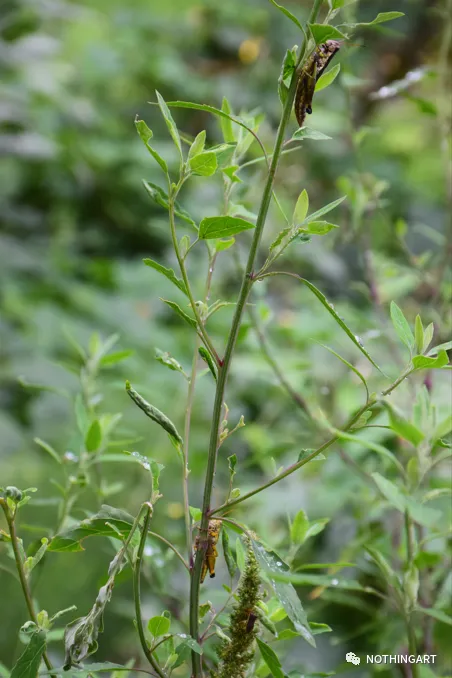
Count how many insects you see on this blade of grass?
Traversing through tall grass and ancient forests was part of daily life in Liangdeng Village – climbing walls, crossing forests, and working in artists’ courtyards, capturing the deep affection for the most rustic parts of home.
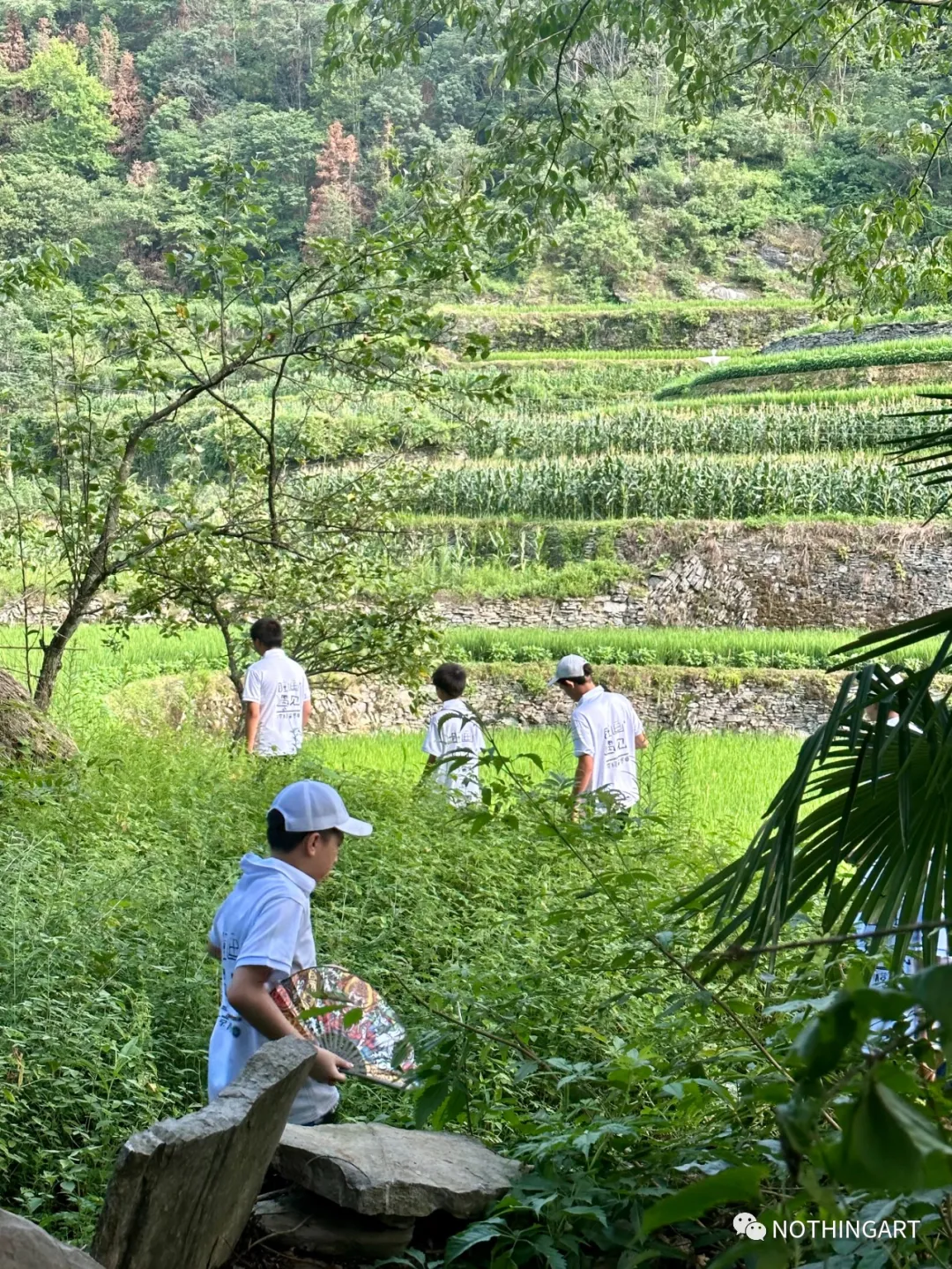
Blazing a trail through waist-high grass.
Crossing fields, we saw hardworking scarecrows at work.
Volunteers and local children adapted to the terrain and environment in various postures for sketching and creative work.
Upon returning from sketching, the young volunteers themselves became works of art.
This is the daily life of the locals in Liangdeng – farming depends on the weather, water must be conserved, and meals consist of a bit of pickled vegetables with a bowl of rice. Young people leave to seek a living elsewhere, while those who stay search the mountains for sustenance, working diligently from dawn till dusk.
During our days in the village, we conducted field research in the simplest way possible, experiencing and documenting the authentic life of Liangdeng Village with our brushes, remembering its beauty and poverty.
In the first two days, a young volunteer asked Teacher Li:
“Why should I come here to suffer? I will never live like this.”
“Child, you are broadening the depth of your life.”
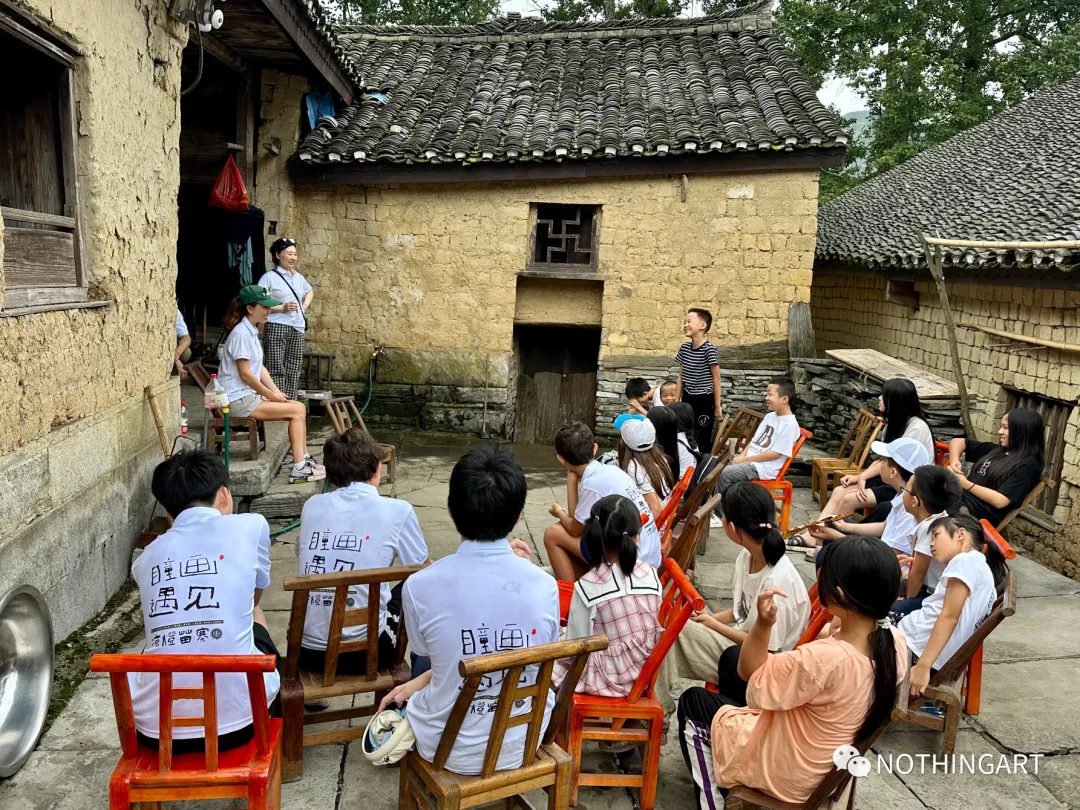
Teacher Li teaching class.









